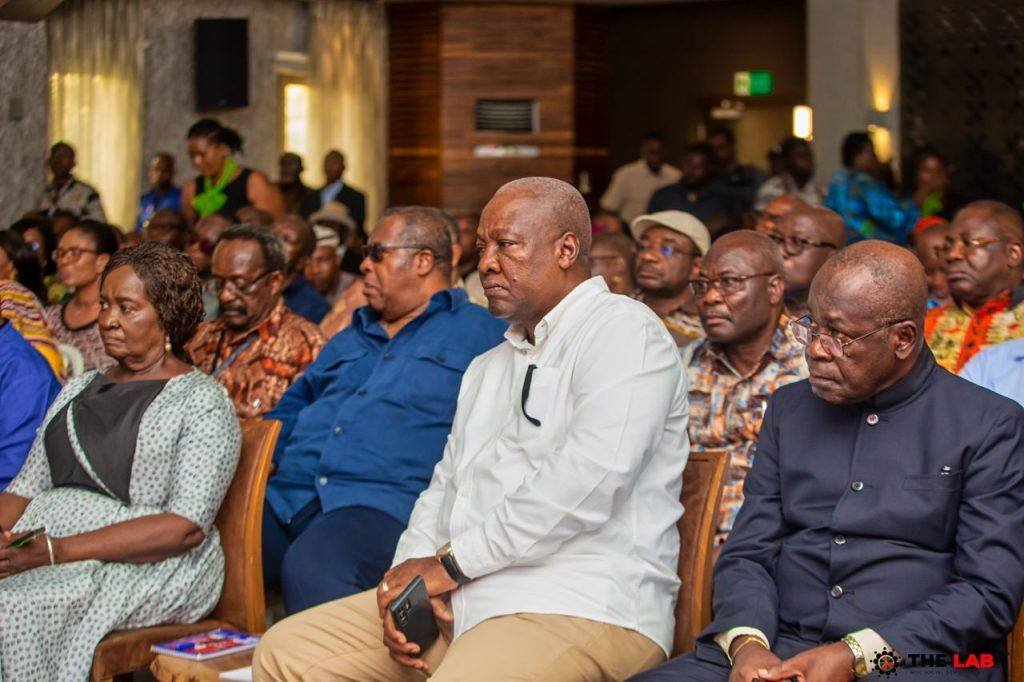
By Joshua Worlasi AMLANU
The central bank has called on traditional lenders to reassert their relevance in a digital financial ecosystem increasingly dominated by telecom-led mobile money platforms and agile fintech startups.
Mobile money platforms now process over 97 percent of all digital transaction volumes and account for 72 percent of total value, according to data from the central bank’s March 2025 Summary of Economic and Financial Data.
At an industry forum convened by the Ghana Association of Banks and ABSA Ghana on Tuesday, Bank of Ghana Governor Dr. Johnson P. Asiama warned that banks are ceding too much ground to non-bank players in the delivery of digital financial services.
“The future of banking is open, not siloed,” Dr. Asiama told banking executives gathered at the GAB Industry Thought Leadership Event, themed ‘Banking the Last Mile: An Industry-Led Strategy for Accelerating Digital Finance’.
While praising Ghana’s digital rails – including the GhIPSS platform – for enabling wide access to payment infrastructure, Dr. Asiama pointed out that banks’ digital channels handle less than 1% of transaction volumes.
He said this divergence is more than just statistical; it is a structural shift that places telcos and fintechs at the centre of consumer financial behaviour, while banks risk becoming marginal players in a rapidly evolving landscape.
To reverse this trend, the Governor urged banks to embrace open banking frameworks, accelerate API standardisation and invest in shared infrastructure that allows customers to port their financial data across platforms with consent.
“Banks must lead, not follow,” Dr. Asiama said. “Open banking is not about giving ground to new entrants; it’s about reclaiming trust, redefining convenience and renewing relevance.”
BoG announced the formation of a Technical Working Group on Open Banking Readiness as one of the forum’s key outcomes. The group will chart a roadmap for enabling interoperability, competitive product layering and consent-driven data sharing across banks and fintechs.
The push toward open banking comes as banks struggle to maintain digital relevance, especially in rural and informal sectors where low-income users rely almost exclusively on mobile wallets for payments, remittances and even small unsecured loans. More than 4 million Ghanaians have accessed such loans, often beyond the reach of traditional financial institutions.
Although the country boasts over 24 million active mobile money accounts and robust payment rails, digital usage for higher-value financial services such as savings, pensions and insurance remains shallow, particularly among women and underserved communities.
Dr. Asiama said the real challenge is now moving from access to value and from connectivity to capability.
The Governor stressed that banks, fintechs and telcos cannot go it alone.
He called for a “blended delivery model” in which players co-develop inclusive financial products and deploy them through interoperable digital infrastructure.
He cited opportunities for micro-loans, insurance and pensions delivered via agent networks and cooperative platforms, particularly in last-mile communities.
The central bank is preparing to mandate interoperable digital identity standards for all financial service providers as part of its know your customer (KYC) and fraud detection systems. This digital ID layer, it argues, will reduce onboarding friction and open access to formal financial products for underserved populations.
In parallel, the bank is working with the Ghana Fintech and Payments Association to develop regulatory guidelines for AI use in fraud detection and credit scoring, inspired by sandbox models seen in jurisdictions such as the UK.
The post Banks pressed to regain ground as fintechs lead digital finance appeared first on The Business & Financial Times.
Read Full Story















Facebook
Twitter
Pinterest
Instagram
Google+
YouTube
LinkedIn
RSS